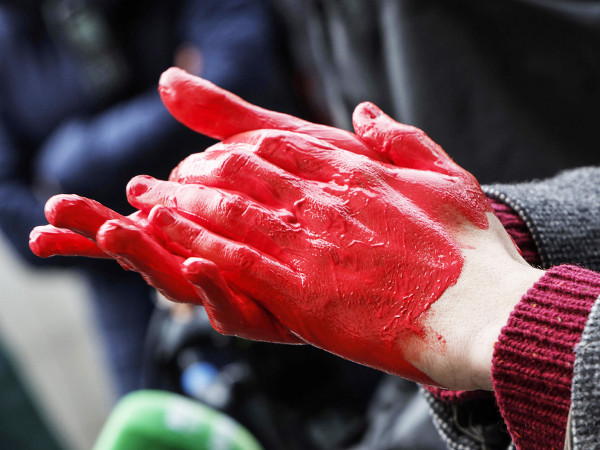The duty, the moral and political obligation to tell. Even if you never got on those boats, even if a blade never risked branding you, even if you’ve never felt 14 men burden you between your thighs. If it’s not you who burns your palms under trains, who spends days and nights in the belly of a truck, who prefers prison because it’s safer than a city on fire. TO lose their lives a few miles from a Calabrian coast where your child should have been playing in the sand and not arriving with lungs full of fuel, stranded like a wreck.
Born in Nairobi 35 years ago to Somali parents who migrated to London and fled the civil war, the Afro-British poet Warsan Shire has never experienced the drama of the journeys of hope firsthand, but the words of his most famous poem, Home, have become a symbol, a lucid and touching interpretation of the refugee stories of this century, those who cross borders at the borders of Mexico as well as the gates of Europe. Reading it is good and bad at the same time, awaken consciences but it strikes in the chest, and it is no coincidence that some of his verses have also been cited for tell the story of the massacre of the fishing boat sunk on February 26 at Steccato di Cutro, in Calabria. Tragedy in which 67 people lost their lives, 14 they were children.
“No one puts his children in a boat unless the water is safer than the land” writes Shire, as if to dispel the doubt that makes its way into the head of every parent who lives across the border, and has never had to choose between life or death, between branding or escape, between possibility of salvation or slavery. The words of the poet shake us more than the cold bulletins issued by the NGOs (which estimate 26,000 deaths in 10 years in the Mediterranean) because they give voice to those who have no voice and they are a political proclamation.
The verses of Home they are in fact born from Conversation about home (at a deported centre), a series of encounters by the author with a group of African migrants who in 2006 had taken refuge inside the building of the former Somali embassy in Rome. The day before he arrived, a boy had thrown himself off the roof. “I wrote the poem for them, for my family, for anyone who has experienced pain and trauma in that way,” the poet said.
Getting to know Warsan Shire is easy: her readings go crazy on the web and she is considered one of the most influential voices of the black british poets and of spoken word poetry. In 2015 she was mentioned by actor Benedict Cumberbatch in a video on Syrian refugees and in 2016 she was also noticed by superstar Beyoncé, who after reading her first book of poetry (Teaching My Mother How to Give Birth) calls her to participate in the visual album Lemonadewhich also features tennis player Serena Williams and model Winnie Harlow.
Last January he published the first collection of his works, Bless the grown daughter from a voice in the head (fandango, 16 euros, 149 pages), in which he gives space to themes such asimmigration and theadolescencei food disorders hey conflicts with faith. “Poetry saved my life” reads the summary of the book.
Certainly, his verses know how to penetrate deeply and they have the power to never leave us indifferent.

4 min read

4 min read


